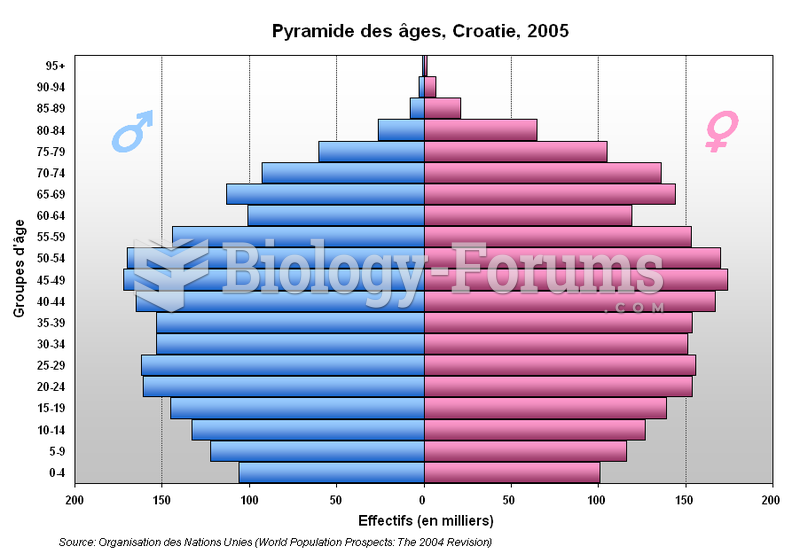|
|
|
The people with the highest levels of LDL are Mexican American males and non-Hispanic black females.
Every 10 seconds, a person in the United States goes to the emergency room complaining of head pain. About 1.2 million visits are for acute migraine attacks.
Bacteria have flourished on the earth for over three billion years. They were the first life forms on the planet.
Signs of depression include feeling sad most of the time for 2 weeks or longer; loss of interest in things normally enjoyed; lack of energy; sleep and appetite disturbances; weight changes; feelings of hopelessness, helplessness, or worthlessness; an inability to make decisions; and thoughts of death and suicide.
Increased intake of vitamin D has been shown to reduce fractures up to 25% in older people.







